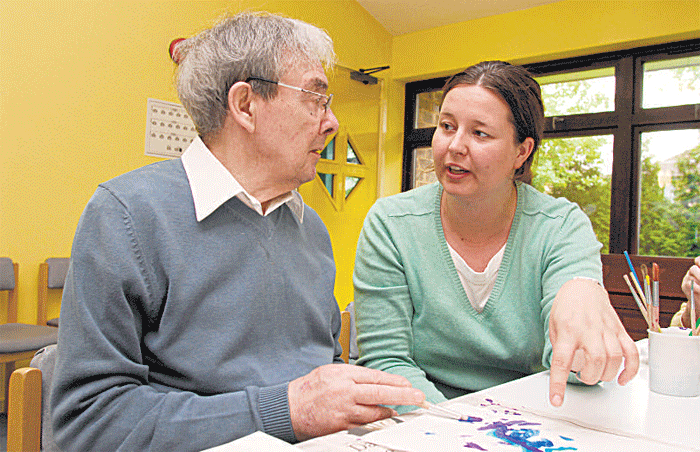Profile: The Dementia Nurse
Trained to spot stress in carers, nurses offer help to the families of people affected by dementia

Your support helps us to tell the story
From reproductive rights to climate change to Big Tech, The Independent is on the ground when the story is developing. Whether it's investigating the financials of Elon Musk's pro-Trump PAC or producing our latest documentary, 'The A Word', which shines a light on the American women fighting for reproductive rights, we know how important it is to parse out the facts from the messaging.
At such a critical moment in US history, we need reporters on the ground. Your donation allows us to keep sending journalists to speak to both sides of the story.
The Independent is trusted by Americans across the entire political spectrum. And unlike many other quality news outlets, we choose not to lock Americans out of our reporting and analysis with paywalls. We believe quality journalism should be available to everyone, paid for by those who can afford it.
Your support makes all the difference."In my experience, carers of people with dementia spend an awful lot of time feeling guilty about getting irritable with their loved ones or being somehow less than perfect around them.
"But dementia doesn't come with a handbook and until someone close to you has it, you really don't know how you are going to react."
Paulette Winchester-Joseph is an Admiral Nurse team leader in Barking and Dagenham, where her primary role is to offer help and support to the families of people living with dementia and help them to access the various services they need.
Although her role is primarily clinical, she has a wide-ranging brief that can become very hands-on.
"One of my clients stopped taking her husband to his day care centre recently because after several weeks of refusing to be washed, people started to comment about the smell and she felt not only embarrassed but guilty about not looking after him properly.
"After a couple of hours of persuasion, he finally agreed to get into the bath, and the sessions that are so vital to both of them were restored.
"That wouldn't be a typical day for me, but sometimes, you simply have to roll your sleeves up," she adds.
One of only 75 Admiral Nurses in the UK, all of whom are trained in mental health issues, Paulette is on hand to spot signs of depression or stress in carers, as well as make sure that those with dementia receive the best possible care.
"With more than 70 cases between us, my colleague and I don't get to see our clients every week, but over the months and many cups of tea, we have struck up enough of a relationship with the family to know when a carer is at breaking point.
"Being a dispassionate observer rather than a close family member, I can gently initiate a conversation on respite care or even suggest looking into a long-term residential place without anyone feeling awkward."
While she stresses that clients "would never be bullied" into taking such a big step, she believes that nurses can have an important role in saying sensitively that residential care can sometimes be the best option.
Working as a specialist dementia nurse based within the NHS, Winchester-Joseph is also able to offer practical advice to other hospital staff at the local trust.
"Nurses on the ward can get worried when dementia patients are unable to eat, but I reassure them that it is usually simply that the swallowing reflex has disappeared.
"Giving advice on food presentation to ward nurses, while also recognising that dementia patients are adults and must still be allowed to make choices, is all part of the service."
While dementia is most associated with the elderly, Admiral Nurses also encounter far younger patients living with the condition.
"A diagnosis of dementia when you are 37 and the mother of young children - as a recent case of mine was - is devastating," she adds. "But by getting to know the family and understanding how they tick, we can offer valuable support and guidance when they need it most."
Join our commenting forum
Join thought-provoking conversations, follow other Independent readers and see their replies
Comments